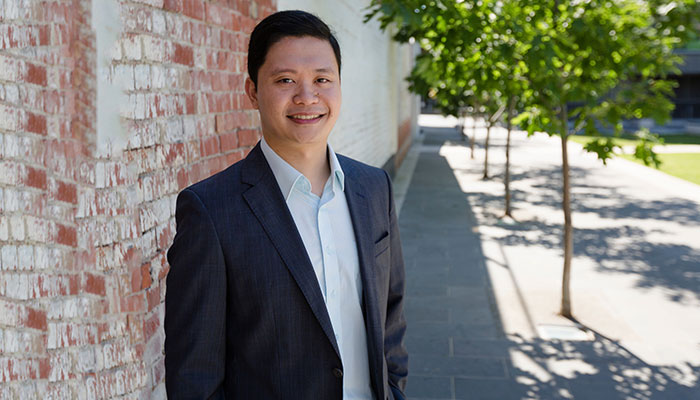With more than 200,000 Year 12 students across Australia about to sit their final year exams, many are feeling the pressure to choose a career path at the ripe old age of 18.

Mobile skills: research shows 21 per cent of young workers switched jobs in the past year, with 60 per cent open to new opportunites.
Their career choices will be primarily determined by their beliefs about what kind of job they will be good at and what will make them happy. However, countless surveys tell us that many people already entrenched in the workforce can often harbour career regrets.
People despair over their jobs for various reasons and may have ended up in a job that has proven to be less than satisfactory. It may have been a role they were forced to pursue by other people, or their personal and financial circumstances led them on that particular journey.
For instance, some students may end up taking management courses even if they are not interested in that area because they are expected to take over their family business.
The days of a job for life are long gone - nowadays, it is normal to move between jobs or even change your career.
In extreme cases, parents exert control over their child’s career instead of providing them with support to pursue their interests. Some people may be forced to take a particular career out of financial necessity. These outcomes stifle a person’s need for autonomy and competence, which in turn reduces job satisfaction.
However, the days of a job for life are long gone - nowadays, it is normal to move between jobs or even change your career. US research from Gallup shows that 60 per cent of millennial workers are open to new job opportunities and more than one third will look for a new job with a different organisation in the next 12 months if the job market improves.
The report, How Millennials Want to Work and Live, says that 21 per cent of millennials changed jobs within the last year, which is more than three times the number of non-millennials. Gallup estimates that millennial turnover costs the US economy US$30.5 billion annually.
Millennials are also less likely to stay in their current employment. Half of them ― compared with 60 per cent of non-millennials ― strongly agree that they plan to be working at their company one year from now. For businesses, this suggests that 50 per cent of their millennial workforce doesn't see a future with them.
Many millennial workers are likely looking to switch jobs because of their lack of engagement. The majority of the millennial workforce, 55 per cent, feels unattached to their existing role and company, Gallup says.
Three myths about career choices
The first step towards more effective career decision-making is to challenge some myths about work and career planning.

Money or meaning? Studies show many workers value job satifsaction over salary and also want to work for companies who have a social 'purpose'.
1. Job satisfaction is straightforward
Nobody is satisfied with all aspects of their job all the time. That’s inevitable because trade-offs have to be made.
People entering the workforce have to determine what value they place on remuneration, professional development and maintaining a healthy work-life balance. Some lucky individuals find jobs that tick all the boxes, but compromises usually have to be made as society’s values and priorities change over time.
Studies have shown there is a small correlation between job satisfaction and pay. For instance, people in jobs associated with having a certain “calling”, like social work, tend to value a sense of purpose and meaning over a high income.
Likewise, many workers want more from their employer especially when it comes to its social purpose and position on issues such as climate change and same sex marriage. For other employees it could be around flexible work arrangements, or on-site childcare facilities.
Workers today are putting a greater emphasis on working in a collaborative and inclusive workplace where their contribution is recognised and valued.
2. But it’s what I’m good at
Career exploration is not just knowing about strengths and weaknesses. It also involves gathering as much information as possible about a career choice.
People naturally gravitate towards careers that they find interesting. We determine what is interesting based on what we think we are good at. And what we are good at is determined by our achievements and accomplishments.
For instance, students may decide to pursue a career in engineering because they enjoy science and technology. However, the way we view ourselves is also shaped by what other people say we can and cannot do. This is a double-edged sword as this may come in the form of support and encouragement or undue pressure and control.
We need to be aware and consider other sources of information to get a complete and accurate picture of what we can be good at and what we can expect from a particular career.

Be adaptable: Dr Patrick Garcia says it's acceptable for graduates not to have a plan set in stone about their future careers.
Apart from talking to career counsellors and parents, or taking career assessment tests, engage with people who actually work in the field. Company websites only highlight the “best” aspects of the job and are less likely to offer a realistic job overview. The idea is to get information from multiple sources to make informed decisions.
My research found that parental support and provisions for career counseling are important predictors of career decidedness and optimism among adolescents. However, strong parental control and influence can undermine wellbeing and satisfaction because it hinders a sense of control and competence.
When does it become controlling? When parents make the provision of love and affection conditional on the fulfillment of their own desires for their children (i.e., I only love you if you obey my wishes).
It's OK for graduates to not have a perfectly planned future career. Think of university as an opportunity to clarify interests, develop competencies and gain important life skills.
3. Now is not forever
The days of the predictable linear career where employees rely on organisations for career growth and development are long gone. Technology, globalisation and intense competition have created a sense of career uncertainty and job insecurity.
Nowadays, there is a need for employees to be proactive and adaptable. That includes being comfortable and ready to face possible career challenges and transitions. The good news is, and contrary to what most people think, proactivity and adaptability can be learned and strengthened.
My research found that being adaptable can be passed on from one generation to the next via role models. These roles models can be teachers, parents, even grandparents. Aside from providing career-related advice, role models instill resilience and adaptability through the sharing of knowledge, skills and experience.
In addition, much of the media commentary about job automation is overblown. While it may be true that technology has put some occupations at risk, it is also true that it has also introduced alternative forms of employment. For instance, a decade ago, who would have predicted you could make a living as an Uber driver, app developer, YouTube content creator, drone operator or social media manager?
Navigate the landscape
The truth is we need to “navigate” the career landscape ourselves. Workers today are expected to take charge and manage their own careers.
It is okay for graduates to not have a perfectly planned future career. Think of university as an opportunity to further clarify interests, develop competencies, and gain important life skills.
Dr Patrick Raymund James Garcia is Associate Professor of Management and Organisational Behaviour at Macquarie Business School
This article was first publish on 16 October 2019.



